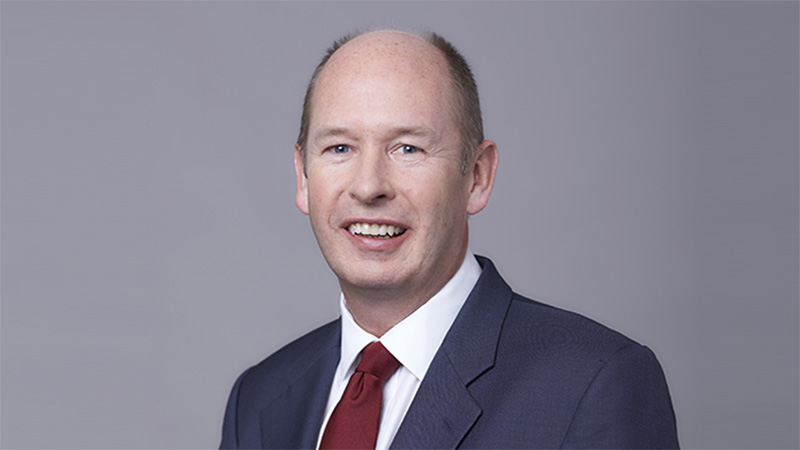It has been a volatile period for fixed income markets. From the will-they-won’t-they on rate cuts, to the disruption created by elections, to mounting geopolitical tensions, bond markets have felt the heat. For Mark Dowding (pictured), chief investment officer at RBC Bluebay, however, this a fertile environment for ideas.
Dowding says the group’s point of differentiation is to understand how markets move on the back of policy and politics: “We’ve seen that as an area of competence and expertise. We spend a lot of our time and energy meeting with policymakers, and others across the political spectrum to determine the direction of travel and how we might diverge from the consensus wisdom.”
RBC Bluebay now runs around $120bn on its global fixed income platform, which gives it the ear of policymakers around the world. In the UK, for example, Dowding is part of a group that meets regularly with the Bank of England to give input on the monetary policy cycle and understand its views.
See also: AXA IM’s Nicolas Trindade: Why short duration makes sense for rate cuts
These throw up potential opportunities. He recently disagreed with the UK central bank on the direction of inflation. He saw a more embedded inflation problem than in other countries, with wage rises a particular concern. He adds: “I saw this as an impediment to cut rates. While some are arguing for three or four cuts, I felt like a lonely voice saying they might not cut at all. It might happen once, but inflation could go back up again from here.” This has informed the group’s negative position on UK gilts, held since the start of the year.
This also applies elsewhere. Dowding visited Washington DC at the start of the year and talked to the Federal Reserve, former central bankers, plus think-tanks and opinion-formers. He says: “At the start of this year, it was clear that the US economy looked to be in really good shape. The stockmarket was booming and recording new highs. Credit spreads were rallying. So why was every investment bank telling us that the Fed would start cutting rates in March or June? We had a sense that the market wanted to believe in rate cuts.”
To Dowding, it was clear that rate cuts were only a likely outcome if there was an economic hard landing, but the environment appeared to be closer to that of the 1990s with a soft landing and no recession. In response, they reduced interest rate exposure and waited for the market to adjust.
This has also proved important amid the political turmoil in Europe. The election of Giorgia Meloni in Italy, for example, brought some volatility to bond markets: “When she took office, a lot of people were saying this would be bad news for Italian bond markets. We were far more circumspect, and she has turned out to be more of a centrist than expected. We were long in Italian bonds, because there was too much bad news in the price.” Dowding is currently taking the opposite view on France, believing that government bond yields do not reflect the weakness of the country’s fiscal position and the fragility of its politics.
See also: Newton’s Bhavin Shah: What the new macro regime means for multi-asset investors
He says the team aims to engage constructively with policymakers. “We’ve had a lot of discourse with a lot of policymakers and we’re not scared to speak our mind. As such, we get a lot of access and are a respected voice.”
Active investing
It is this active approach that defines RBC Bluebay. Dowding says: “We don’t like consuming a lot of external research. We have a team of 130 people who are all specialists, researching different markets and opportunities in different corners of the global fixed income universe. running 40-odd strategies across investment grade, emerging markets, multi-asset credit, leveraged finance, securitised credit, distressed debt. We run benchmarked, total return and hedge fund strategies all on the same platform. It is one team manufacturing lots of different strategies.
“Our style is to be truly active. Our hope is that we build a team of talented risk takers, and put them in a coordinated framework, which is well risk-managed, and that enables us to deliver good investment results.”
Dowding took over as chief investment officer in 2018, with responsibility for the overall fixed income platform, plus a range of different investment strategies and processes. He was instrumental in the creation of a number of government bond strategies for the group. As CIO, he continues to be an investor, looking at ideas and how they are applied to portfolios.
See also: What has caused the global equity market sell-off?
He believes there is a lot of alpha in fixed income, particularly amid the current volatility. He adds: “These markets are very inefficient. Too much money is run by people who claim to be active, but are really just benchmark huggers. I decry the fact that people go passive in fixed income, when you can demonstrate that if you have the right skills, this is an asset class that is inefficient.”
He says part of the problem is that not everyone that owns fixed income is trying to maximise their profits: “That’s not what you do if you’re a central bank or an LDI manager. Markets are quite inefficient and there can be credit premia, liquidity premia, term premia, volatility premia. If you understand how they work, you can take advantage.”
The group’s flagship bond funds in the UK have shown strong recent performance. The $1.16bn BlueBay Investment Grade Global Aggregate Bond, for example, is top quartile over three and five years. It has delivered a gain of 4.7% versus drop of 4.2% in the wider IA Global Mixed Bond sector (source: FE fundinfo, to 6 July 2024). The group’s other large fund, the $479.4m BlueBay Global Sovereign Opportunities is up 33.8% over three years and has shown very steady performance at a time when bond markets have been volatile and unpredictable.
Dowding says an honest appraisal of the current situation in bond markets is required. During the period of low interest rates, he levelled with investors: “I’ve had to stand up and say, this is our government bond product and it will lose you money. However, I will commit to lose less than everyone else loses.” Similar realism is needed today.
Bond markets today
At the moment, he believes there is widespread expectation of a significant bounce-back for bond markets, given the bear market in 2022. He says: “Lots of people are anchoring their idea of normal on what happened in the decade before the pandemic. That was an odd period. We saw QE and negative interest rates. Inflation was abnormally low. Now there are structural reasons why inflation will end up higher: a reversal of globalisation, for example, a turn in demographics, structural changes in the labour market. These are all reasons that inflation could be higher that could be missed. Unless a fixed income manager was around in the 1990s, they have never seen markets behave like this, or had to handle inflation.”
He says this is leading to an environment where investors believe that yields look ridiculously cheap. They’re not, he says, and investors need to get used to a ‘new normal’ for bond markets.
See also: American Century: Investors are so captivated by yield they’re ignoring credit risk
What does this look like in the group’s portfolios? He believes that debt levels in the US are likely to lead to a steeper yield curve and is positioned accordingly. In Europe, the team is negative on France, believing that the combination of its debt levels and political turbulence make for an uncomfortable combination. They are also bearish on Japanese government bonds, seeing continued pressure on the Yen from government policy.
They see some value in emerging market local rates, including South Africa, Mexico and Brazil, where there is a significant gap between inflation and government bond yields, providing a high real return. The team recently scrapped its short position on gilts, believing that the election of a stable majority government and a potential August interest rate cut may give UK government bonds a boost in the short-term.
Credit, he says, is “not cheap”, but the supply versus demand continues to support the asset class. “We like financials versus industrials, but otherwise credit spreads might grind tighter, partly because we’re seeing a reduction in the supply of corporate bonds on a net basis. That’s pushing spreads slightly tighter. Corporate bonds aren’t that exciting because valuations are not that compelling.”
He believes that ‘higher for longer’ interest rates will continue to put pressure on private markets and private assets. “It exposes business models that were dependent on leverage and so private equity and private debt are going to be facing real issues going forward”. That said, he still sees some value in distressed debt.
These markets certainly provide plenty for Dowding and his team to work with. Volatile politics, indebted governments and election fever are creating a rich environment for active bond managers.











